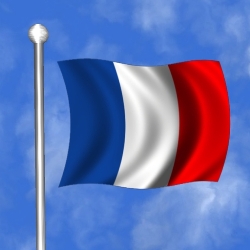iGaming Consolidations Weigh Heavily On The Industry

When the tech boom first started, there were dozens of innovative companies that went on to offer new products and become established brands. Many of these small businesses have now been bought out or alternatively become online giants that are swallowing up smaller brands left, right and center, such as Facebook and Google. This scenario isn’t anything new, and it’s pretty much normal in business to see an entrepreneur come up with an idea and invests tons of time and money into growing it, only to ultimately sell it for a handsome price.
The poker world is no exception, and when the online poker boom first began many independent sites sprung up like PokerStars, Full Tilt Poker and Party Poker. Back then, every site had its own personality and selling points, creating a lot of diversity and exciting opportunities for players. Today, however, all three of these sites are now owned by publicly traded companies which have portfolios that include casino sites and sports books, and following their acquisition budget cuts have been made which in many instances have impacted the players’ experience.
Although poker players are often disappointed to see the sorts of changes that are implemented after an independent poker site is purchased by a large company, it helps to understand some of the reasons behind their actions:
1: A Lack of Personal Attachment
Small business owners often view their businesses as their life’s work and put a lot of blood, sweat and tears into nurturing them. A large corporation, on the other hand, views a poker site as a means of revenue and treats it accordingly. There is no sentimentality attached to the business, and what the company focuses upon is what can be done to increase profitability, either by reducing costs or increasing revenue.
2: An Inability to Gamble on Gambling
Publicly traded companies are beholden to their stockholders and expected to make decisions that are based on fact, not speculation in order to ensure that stock prices remain stable or grow, not plummet due to poorly calculated business moves. As a result, acquisition companies cannot invest heavily in improving sites, or wait to see if revenue grows before making cutbacks the way an independent owner can. They have to deal with what’s evident in financial data and realistic projections.
3: Poker Just Isn’t as Profitable
While there is money to be made in the world of online poker, other sports books, daily fantasy sports and casino games like slots have much greater potential for generating revenue. Online poker’s success depends on liquidity, and there has to be enough players on the site at any given time to ensure it booms and make money. That means that companies have to invest a lot marketing its products in order to attract players and see good returns. Other types of gambling do not have the same liquidity issue as poker, and are therefore a cheaper way to make a buck. It’s only natural the more profitable types of gambling would therefore be a company’s main focus.
Poker No Longer the Main Draw
In addition to consolidations and acquisitions, the online poker industry has also had to face the fact that the game has waned in popularity since the “poker boom” came to an abrupt end in 2006. Bearing a huge responsibility for its decline was the introduction of the Unlawful Internet Gambling Enforcement Act (UIGEA) in the US that same year, which saw PartyPoker subsequently quit the lucrative market.
In 2011, Black-Friday dealt a further hammer blow to the industry after PokerStars, Full Tilt and Ultimate Bet were seized by the Department of Justice, ultimately resulting in the huge American market being cut adrift from the rest of the world. The US government had expressed concerns at the time that the money being spent on these unlicensed sites should be taxed and help contribute to the US economy. Unfortunately, only three US states have introduced regulated online poker legislation of their own since 2013, and as a result the industry continues to remain a mere shadow of what it once had been.










